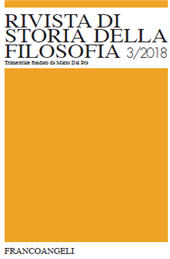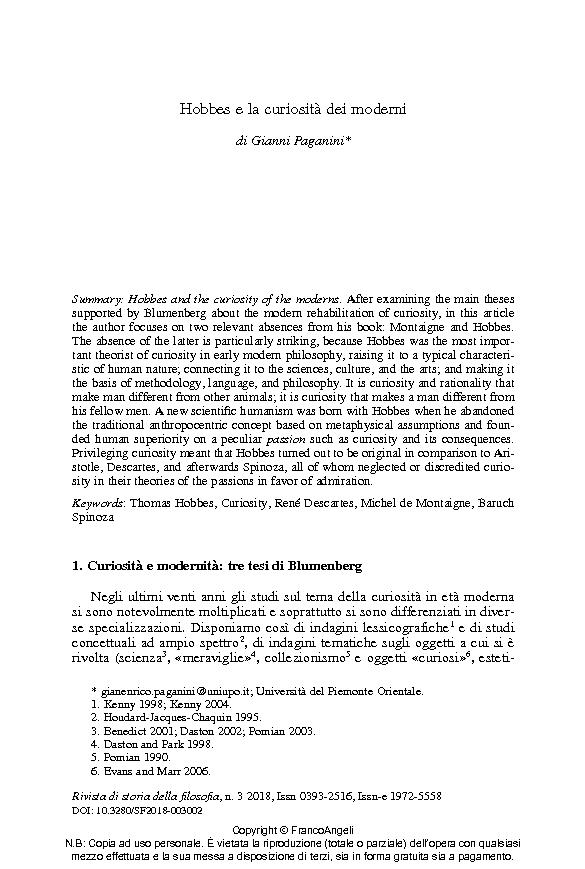Hobbes e la curiosità dei moderni
397-417 p.
After examining the main theses supported by Blumenberg about the modern rehabilitation of curiosity, in this article the author focuses on two relevant absences from his book: Montaigne and Hobbes. The absence of the latter is particularly striking, because Hobbes was the most important theorist of curiosity in early modern philosophy, raising it to a typical characteristic of human nature; connecting it to the sciences, culture, and the arts; and making it the basis of methodology, language, and philosophy. It is curiosity and rationality that make man different from other animals; it is curiosity that makes a man different from his fellow men. A new scientific humanism was born with Hobbes when he abandoned the traditional anthropocentric concept based on metaphysical assumptions and founded human superiority on a peculiar passion such as curiosity and its consequences.
Privileging curiosity meant that Hobbes turned out to be original in comparison to Aristotle, Descartes, and afterwards Spinoza, all of whom neglected or discredited curiosity in their theories of the passions in favor of admiration. [Publishers' text].
Ist Teil von
Rivista di storia della filosofia : LXXIII, 3, 2018-
Artikel aus derselben Ausgabe (einzeln erhältlich)
-
Informationen
ISSN: 1972-5558
KEYWORDS
- Thomas Hobbes, Curiosity, René Descartes, Michel de Montaigne, Baruch Spinoza



